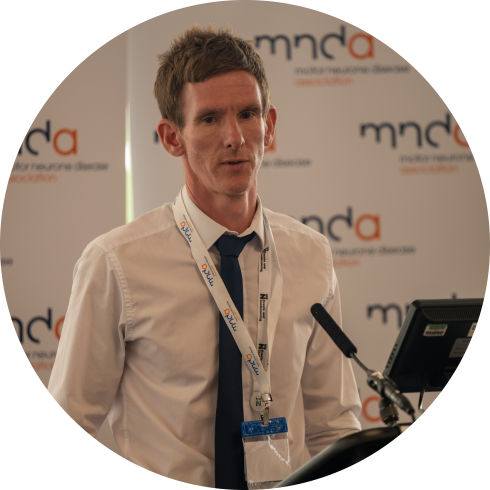Understanding the underlying biology that leads to the disruption of normal astrocyte functions in C9orf72 MND.
Principal Investigator: Dr Scott Allen
Lead Institution: University of Sheffield
MND Association Funding: £278,722
Funding dates: December 2022 - May 2026
About the project
Previous research has shown that motor neurons are not the only type of brain cell damaged in MND, and that astrocytes (cells which support the function of motor neurons) also become dysfunctional. It has been found that a mutation in the C9orf72 gene causes energy production to be reduced in the astrocytes which causes the astrocytes to be less supportive towards motor neurones leading to increased cell death. It is thought that this reduced energy production may be due to the loss of a protein called adenosine deaminase (ADA), but it is not yet clear how this goes wrong in astrocytes in MND. This project will use cell models of MND to observe the underlying biological mechanisms of the loss of ADA and increase understanding of the role this plays in MND. It also aims to uncover ways in which the loss of ADA might be corrected, through testing whether purine nutritional supplementation or targeted gene therapy can increase levels of ADA in astrocytes.
What does this mean for people living with MND?
By observing cell models of MND to understand the biological mechanisms leading to the loss of adenosine deaminase, the development of targeted therapies to treat those affected by this specific pathway will be furthered. This allows affected astrocyte cells to support surrounding motor neurones, preventing motor neuron death and preventing muscle paralysis. In doing so this could potentially benefit those living with MND as general body movement could be preserved.
Resources
Project code: 887-791
